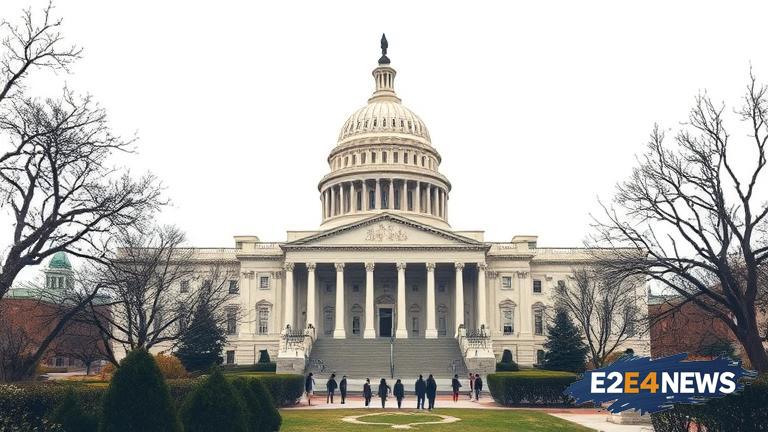In a recent statement, Senator Jim Banks emphasized the need for Congress to reevaluate the role of the Department of Education, suggesting that its elimination could be a viable solution to address issues of federal overreach and bureaucratic inefficiency. The Department of Education, established in 1979, has been a subject of controversy among lawmakers and educators, with some arguing that it has failed to improve the quality of education in the United States. Senator Banks’ proposal has sparked a heated debate, with proponents arguing that the department’s functions could be better handled by state and local governments. Critics, on the other hand, contend that the department plays a crucial role in ensuring equal access to education and protecting the rights of students. The senator’s comments come amid a broader discussion about the proper role of the federal government in education policy. Some argue that the Department of Education has overstepped its authority, imposing unnecessary regulations and mandates on schools. Others point out that the department has been instrumental in promoting education reform and providing critical support to disadvantaged students. As the debate continues, lawmakers are being urged to consider the potential consequences of eliminating the Department of Education, including the impact on federal funding for schools and the potential for unequal access to education. The senator’s proposal has also raised questions about the role of state and local governments in education, with some arguing that they are better equipped to address the unique needs of their communities. Despite the controversy surrounding the Department of Education, there is a growing consensus that the federal government must play a more limited role in education policy. This shift in thinking reflects a broader trend towards decentralization and local control, with many arguing that decisions about education should be made at the state and local level. As Congress considers the future of the Department of Education, lawmakers will need to weigh the competing interests and priorities of various stakeholders, including educators, parents, and students. The outcome of this debate will have significant implications for the future of education in the United States, and could potentially lead to a fundamental transformation of the way that education is funded and regulated. In recent years, there has been a growing movement towards education reform, with many advocating for greater flexibility and autonomy for schools. The Department of Education has been a key player in this effort, providing funding and support for innovative programs and initiatives. However, some argue that the department’s efforts have been hindered by bureaucratic red tape and a lack of accountability. As lawmakers consider the future of the Department of Education, they will need to balance the need for reform with the need for stability and continuity. The senator’s proposal has also raised questions about the potential impact on education funding, with some arguing that the elimination of the Department of Education could lead to a reduction in federal funding for schools. Others point out that the department’s budget is a relatively small portion of the overall federal budget, and that the funds could be better spent at the state and local level. Despite the challenges and uncertainties surrounding the Department of Education, there is a growing sense that the federal government must take a more proactive role in promoting education reform. This could involve providing greater support for innovative programs and initiatives, as well as working to address issues of inequality and access. As the debate over the Department of Education continues, lawmakers will need to consider the long-term implications of their decisions, and work to ensure that any reforms are in the best interests of students and educators. The future of the Department of Education remains uncertain, but one thing is clear: the federal government must play a more limited and supportive role in education policy. By working to promote greater flexibility and autonomy for schools, lawmakers can help to ensure that the United States remains a leader in education, and that all students have access to the high-quality education they deserve. The Department of Education has been the subject of controversy for many years, with some arguing that it has failed to achieve its goals. Despite this, the department has played a critical role in promoting education reform and protecting the rights of students. As lawmakers consider the future of the department, they will need to weigh the competing interests and priorities of various stakeholders, and work to ensure that any reforms are in the best interests of students and educators. The senator’s proposal has sparked a heated debate, with proponents arguing that the department’s functions could be better handled by state and local governments. Critics, on the other hand, contend that the department plays a crucial role in ensuring equal access to education and protecting the rights of students. The outcome of this debate will have significant implications for the future of education in the United States, and could potentially lead to a fundamental transformation of the way that education is funded and regulated.
